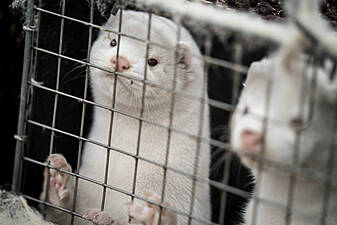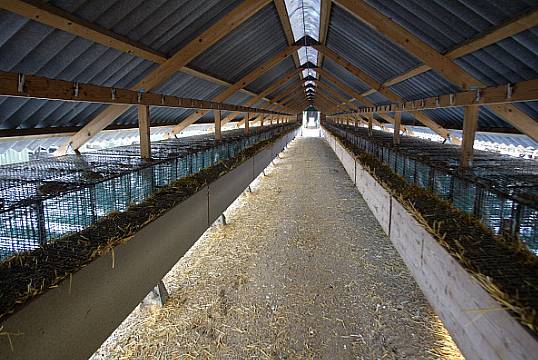Denmark's Prime Minister Mette Frederiksen broke down on Thursday when visiting a mink farmer who lost his herd, following the government's order to cull all 17 million mink in the country.
Ms Frederiksen has faced opposition calls to resign and a vote of no confidence in parliament after an order by the government in early November, which it later admitted was illegal, to cull the country's entire mink population amid concerns over a mutation of Covid-19.
The order was given after authorities found Covid-19 outbreaks at hundreds of mink farms, including a new strain of the virus, suspected of being able to compromise the efficacy of vaccines.
"We have two generations of really skilled mink farmers, father and son, who in a very, very short time have had their life's work shattered," Ms Frederiksen told reporters after a meeting with a mink farmer and his son at their farm near Kolding in Western Denmark.
"It has been emotional for them, and... Sorry. It has for me too," she said with a wavering voice, pausing for breath in between words.
Legal basis
The move to cull Denmark's entire mink population, one of the world's biggest and highly valued for the quality of its fur, has left the government reeling after it admitted it did not have the legal basis to order the culling of healthy mink.

After a tumultuous couple of weeks since the order was given on November 4th, the minister of agriculture, Mogens Jensen, stepped down last week after an internal investigation revealed a flawed political process.
Denmark has proposed a ban on all mink breeding in the country until 2022.
Tage Pedersen, head of the Danish mink breeders' association, said this month the industry, which employs around 6,000 people and exports fur pelts worth $800 million (€672 million) annually, is finished.
Denmark's opposition says the cull of healthy mink should not have been initiated before compensation plans were in place for the owners and workers at some 1,100 mink farms.







